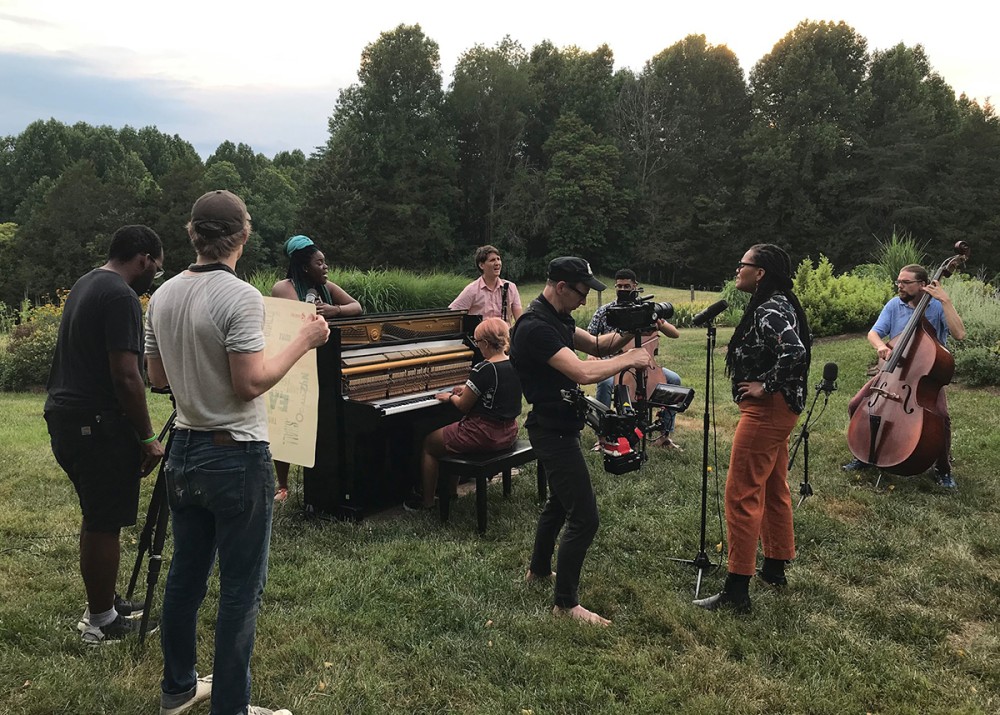The Porter’s Gate’s songs give voice to the realities of 2020
A collective of Black, White, and Latino church songwriters makes liturgical music for resistance.

In 1961, Martin Luther King Jr. joined fellow civil rights protesters who were working to end racial discrimination in Albany, Georgia. There he affirmed how critical the movement’s music was. “The freedom songs,” King said, “are playing a strong and vital role in our struggle.” Bernice Johnson Reagon, a member of the Freedom Singers, a group that formed in Albany, recalled in a 2006 interview that “it was important to us to have songs that named what we saw in our world, and what we wanted to happen with what we saw.”
The Porter’s Gate, a collective of Black, White, and Latino church songwriters, recently released two albums that name today’s realities and offer fresh expression for those continuing the struggle today. My friend Isaac Wardell, who cofounded the Porter’s Gate, told me the aim was to create music that people “could take with them to the protests.”
Four of the eight songs on the Justice Songs album have had me high-stepping about the house. “We Will Make No Peace with Oppression” facilitated the most energetic engagement I’ve ever had with a line from the Book of Common Prayer. The driving chorus—“We will make no peace, no peace, no peace with oppression / We will make no peace, no peace”—calls forth an assiduous marching:





